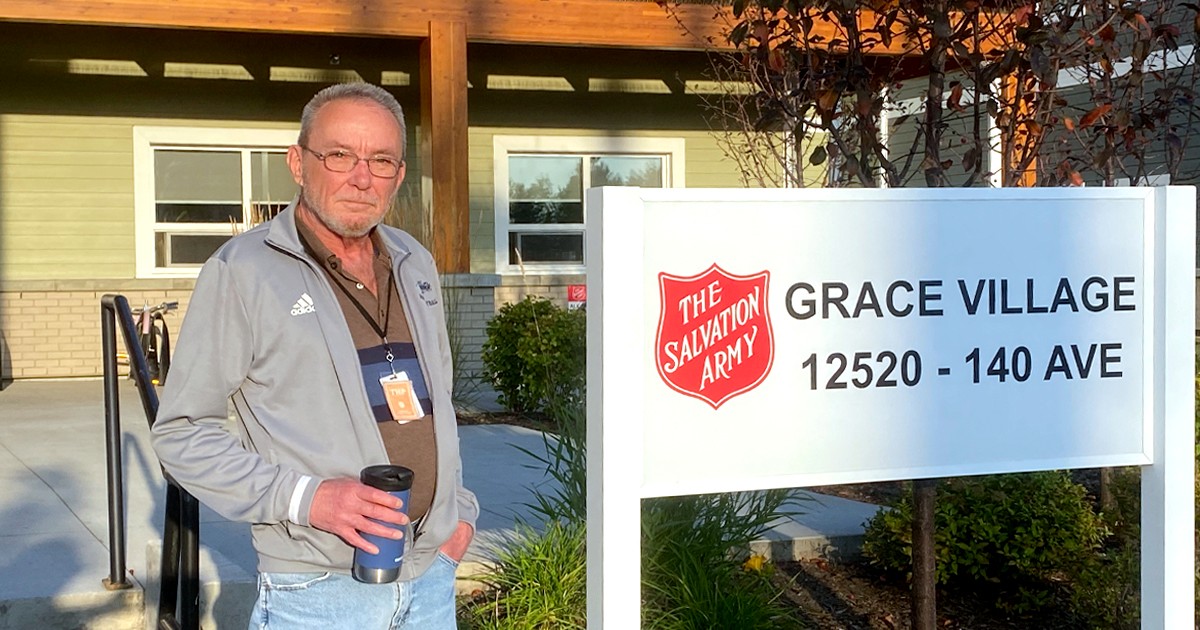I felt God had put me in an ideal place. I had a loving husband and two young kids. Newly hired in my dream job, I used my academic skill in Christian ethics to serve people in the pew. Then my nicely ordered life was upended by grade 3 brain cancer. My most basic sense of who I am was lost in chaos.
Suffering through treatment for more than a year, I was confronted by the differences in my new life. I could no longer succeed according to the system of shared values in our culture that prizes individual autonomy and progress. Another one of these values is efficiency, by which we mean minimizing waste of resources such as money, energy and time.
Why is efficiency valuable? Think about the reasons we use energy-efficient homes, appliances and vehicles. Perhaps we’d say they use less raw materials and are thus cheaper to use and do less harm to the world around us. The value of efficiency is found not in itself but in what it helps us achieve.
I fear we’re elevating efficiency to the point of considering inefficiency a moral failure.
Part of this is how it feels to be efficient. I feel deep satisfaction when I achieve a goal in an efficient way and great dissatisfaction when I lose money, energy or time through waste.
Another part relates to stewardship. Resource use should be maximized so we meet more, not fewer, needs. Even so, most of us need to confess that we have become accustomed to getting what we need now.
Jesus regularly reflects on the cost—we might say the inefficiency—of being a disciple.
The most efficient method is of course not the only one for achieving something good—it can even be the wrong way at times. As a sick person, my goal was to heal quickly and return to normal. I could see that efficient medicine was structured to serve this purpose. Sometimes it did.
My body, however, was not as efficient as my treatment schedule expected it to be. On the calendar I was permitted a week of recovery between each six-week chemo cycle. But three months in, and four and five months in, my body demanded more recovery time. How frustrating! I had become an inefficient patient.
Efficiency was also no help in asking questions such as, “Why did this happen to me?” “What kind of a God allows bad things to happen to good people?” And “Will I live long enough to see my children graduate high school?” I found no one could answer these questions for me. What I really needed from loved ones was their tenacious presence, spending time with me in silence and in lament.
A Three-Mile-an-Hour God
I also needed a God who understood me. A God who took the time to listen to my groans. A God who was slow enough to walk with me at my new speed. I needed what the Japanese theologian Kosuke Koyama called a three-mile-an-hour God.
In Scripture, God works in efficient and inefficient ways. There are occasions when God appears without warning and produces instant signs and miracles. But there are other times when God acts slowly and in costly ways. God allows the Israelites to wander the wilderness for 40 years and exiles them from their homeland for many decades more.
As I wait for God to make good on the divine promise to transform all suffering into joy, I wonder why something that could be accomplished in a moment is taking so much time.
Perhaps God is bringing to light the idea that some good things can only be reached through inefficient action.
Jesus regularly reflects on the cost—we might say the inefficiency—of being a disciple. Let’s look at what Jesus teaches about these things in three encounters he has with the family of Mary, Martha and Lazarus.
Sitting at the Feet of Jesus
As readers we become aware of this friendship in the middle of Jesus’ ministry. With his disciples, Jesus—who doesn’t have a home and is prone to travel dusty roads—makes a stop at Martha’s house in Bethany, a stone’s throw from Jerusalem.
As host, Martha busies herself with the preparations necessary to make her guests feel welcome (see Luke 10:40). Mary’s priority is to hear Jesus teach. A humble student, she settles in at Jesus’ dusty feet. Martha complains to Jesus that Mary isn’t doing any work. Which of us wouldn’t be annoyed?
Jesus’ response is surprising. “Martha, Martha,” he says with respect. “You are making yourself busy with a lot of things. Mary is focusing on what is most important right now” (see Luke 10:41-42).
The Christian life includes both action and contemplation, both tasks and relationships. There are times for each. After a long journey, Jesus may need food to eat. But Mary recognizes that deepening her relationship with Jesus by hearing him teach is what is called for at this moment. It is, after all, one of the main reasons he is here.
No Rush to Healing
In another encounter, Jesus and his disciples have fled across the Jordan to avoid threats of stoning. Martha and Mary send him word: “Lord, the one you love is sick” (John 11:3). It’s a brief message expecting immediate action—Jesus will rush back to Bethany and heal Lazarus.
Jesus’ response is surprising. He stays put, claiming Lazarus’ sickness will not end in death.
Only in hindsight, only with our knowledge that Jesus will raise Lazarus from death, do we understand what Jesus means.
Look at it from Mary and Martha’s point of view. Time passes slowly when we suffer. Each day it took Jesus to return to Bethany must have seemed like an eternity. How many times did Martha look out the window for him? How many prayers did Mary pray for his swift arrival?
When he does finally arrive, Martha goes to meet him on the outskirts of town, saying, “Lord, if you had been here, my brother would not have died” (John 11:21). In desperation she coaxes him, “I know you can change this.”
Next, Mary takes almost the same actions and says some of the same words. Unlike Martha, Mary doesn’t use her time with Jesus to plead with him. She simply falls at his dusty feet and weeps.
Jesus knows the truth about Lazarus’ future. But witnessing the depth of Mary’s suffering and the suffering of those who crowd in around them, he is made aware of his own grief. That well-known shortest verse in English Scripture (see John 11:35), beautiful in its efficient use of language, becomes one of Jesus’ slowest acts.
Jesus wept.
That Jesus was willing to let his friend die for the sake of a lesson is hard to receive. But if he had healed Lazarus then Martha and Mary might not have learned Jesus can suffer loss, too, even while maintaining hope in God’s slow plan of transforming suffering into joy.
Anointing With Perfume
The third encounter, found in John’s next chapter, is included in all four Gospels. Lazarus’ resurrection has caused Jesus’ enemies to put a price on his head. Again, Jesus has fled. But six days before Passover, he returns to Martha’s house. Martha serves while Lazarus eats dinner with Jesus and his disciples.
Mary, who had once sat at Jesus’ feet, who had once wept at his feet, now anoints those dusty feet with expensive perfume, wiping them clean with her hair.
Judas immediately recoils. “What a waste! Mary could have sold the perfume and given the proceeds to the poor.”
John exposes Judas as a liar with secret and devious intentions. Still, his claim is voiced by other characters in the synoptic Gospels—adversaries and followers alike. And why would they not? Jesus frequently told his followers to give up their possessions and meet the needs of others. It’s the right thing to do!
Our society pushes inefficient people to the margins, out of the view of those of us used to acting autonomously and with efficiency.
So, again, Jesus’ response is surprising. “You will always have the poor among you, but you will not always have me” (John 12:8).
Mary’s is an act of learned inefficiency. Having heard his teachings and having wept with him, Mary knows who Jesus is. With divine strength Jesus has served the demanding crowds he loves. His human limitations mean he requires rest, too. Now, near the end of his life, Mary is in tune with Jesus. He needs to retreat from those who will harm him. He needs the comforting care of those who love him.
It should come as no surprise that the next day, at his last meal, Jesus will share Mary’s inefficient care with his disciples by washing their feet.
How Then Shall We Live?
These encounters illustrate how slow, costly and burdensome inefficient work can be. Inefficiency can seem counterintuitive to what we think is valuable. After all, Jesus frequently demanded immediate action directed toward clear goals. Feed the hungry. Heal the sick. Give to the poor.
That’s why his three responses are surprising. If we consider efficiency (and likewise inefficiency) as valuable in itself, we miss what makes these efficient acts good—they help us love God with all we are and love people as we love ourselves.
Our society pushes inefficient people to the margins, out of the view of those of us used to acting autonomously and with efficiency. Sometimes, as it was for Mary and as it was for me, it takes a crisis, an event of profound suffering, to realize the purpose of being human can be met by even the “least of these.”
These are the times followers of Jesus must act as witnesses to the value of all people. These are the times our three-mile-an-hour God calls us to walk at a slower pace, filling in the spaces efficient care leaves empty.
Dr. Aimee Patterson (AimeePatterson.com) is a Christian ethics consultant at The Salvation Army Ethics Centre in Winnipeg, and author of Suffering Well and Suffering With: Reclaiming Marks of Christian Identity.
Reprinted with permission from Faith Today (September/October 2024).
Photo: Fly View Productions/E+ via Getty Images










Thank you Dr. Patterson. A reminder to me that marginalization can take many forms. By not valuing another persons work effort because it is not as "efficient" as mine contributes to their being devalued, excluded and isolated.